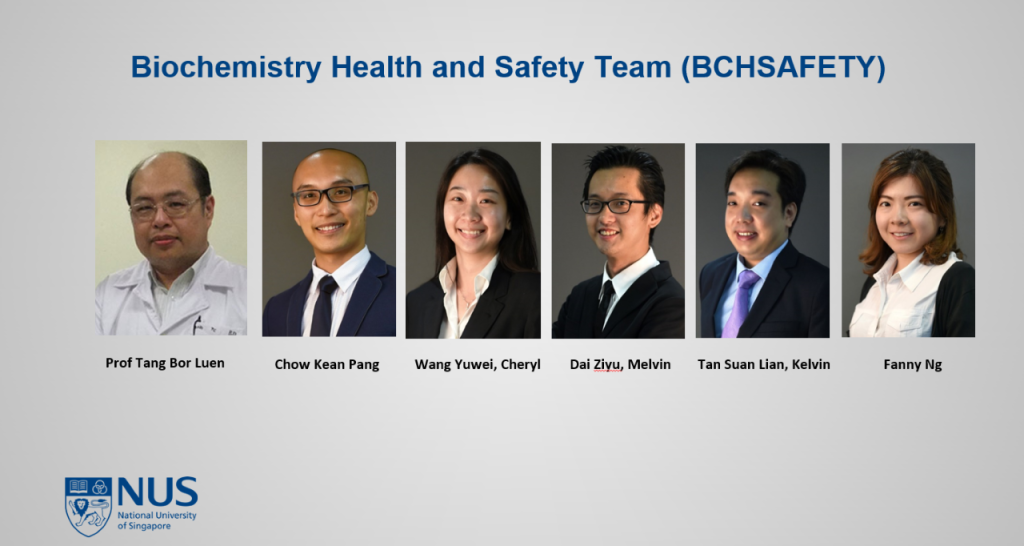
Prof Tang Bor Luen
Safety Chair
Our work in experimental science can expose ourselves to many kinds of hazards. These range from relatively minor ones like cuts and scrapes to more serious situations like fires and explosions that cause large-scale disruption. In particular, the nature of our work in biological science often brings us close to serious hazards such as poisonous chemicals and infectious agents. We also cannot dismiss these potential hazards as remote possibilities. The history of incidents in our department shows that unexpected accidents resulting in injury do occur from time to time.
As workers and supervisors in this potentially dangerous environment, we have legal and moral obligations to reduce the possibility of these incidents, so as to prevent ourselves and our colleagues from being harmed. The Department of Biochemistry Safety Committee aims to facilitate laboratories in the department to comply with national and university safety rules and to promote safe workplace practices.

Prof Yew Wen Shan
Head of Department
+65 6516 8624
bchhead@nus.edu.sg
Profile
Department of Biochemistry Occupational Safety and Health Policy
The Department of Biochemistry is committed to ensuring a positive safety and health culture, to provide a safe work environment, and to maintain the safety, health and well-being for all staff, students, contractors and visitors. The following policy statements demonstrate our commitment to excellence in Safety and Health performance.
1. Safety and Health Culture
Aspires to enhance our Safety and Health Culture, as a core value where every occupant has a role to play in ensuring a safe working environment, mitigate the health risk, and taking care of one’s well-being and others around.
2. Regulatory Compliance
The department maintains compliance with applicable national and university safety and health laws, directives, guidelines and good practices.
3. Mandatory Safety Training
Ensure that all occupants receive appropriate and adequate training, including on the job supervision to ensure their competency in the workplace.
4. Prevention of Ill Health and Injury
The department shall provide the necessary resources for identifying workplace hazards, assessment of risk and determination of control measures to prevent occupational ill-health and injury.
5. Continual Improvement
Strives to continually measure and improve its environmental, safety & health performance and safety culture by:
- Establishing OSH objectives and programs for the department and reviewing their performance annually
- Adopting and communicating best practices through training, educational programs and townhall sessions
- Establishing feedback systems to ensure timely correction of any unsafe practices and/or workplace conditions
- Monitoring safety compliance issue and addressing deficiencies swiftly
- Reviewing each Pl’s OSH management system periodically to ensure its relevance and effectiveness
- Promoting nd supporting Total Workplace Safety & Health (TWSH) initiatives through integration of workplace safety, occupational health and health promotion to ensure employee well-being

